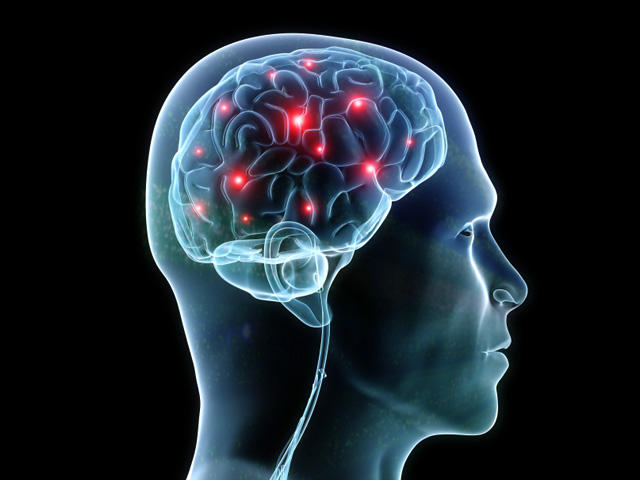Formation in Optimizing Brain Performance

In the fast-paced world, we live in, where information overload is the norm and multitasking is a way of life, optimizing brain performance has become a paramount goal. While there are various strategies and techniques to enhance cognitive function, one of the most profound and sustainable ways to achieve this lies in the art of habit formation. Habits are the building blocks of our daily routines, and harnessing their power can lead to remarkable improvements in brain performance, productivity, and overall well-being. In this article, we delve into the science behind habit formation and explore how cultivating the right habits can unlock the full potential of your brain.
Understanding Habit Formation
Habits are essentially automatic behaviors that we perform without conscious thought. They are ingrained routines that our brain develops to conserve mental energy and streamline repetitive tasks. Habit formation is rooted in the brain’s intricate neural pathways. When we repeat a behavior consistently in a particular context, our brain creates connections between neurons, forming a neural pathway. The more frequently we engage in this behavior, the stronger the pathway becomes, eventually leading to an automatic response triggered by cues from the environment.
Neuroplasticity, the brain’s ability to reorganize itself by forming new neural connections, plays a crucial role in habit formation. As we establish habits, our brain physically changes to accommodate these new pathways, making the behavior more efficient and less mentally taxing over time.
Optimizing Brain Performance Through Habits
- Cognitive Load Reduction: Habitual actions significantly reduce cognitive load. By automating routine tasks, such as morning rituals or exercise routines, your brain is freed from the burden of decision-making and can allocate resources to more mentally demanding activities. This enhanced cognitive bandwidth allows you to focus on creative problem-solving, critical thinking, and learning.
- Consistency and Skill Mastery: Habits create a foundation for skill mastery. Whether it’s learning a musical instrument or mastering a new language, consistent practice forms neural pathways that strengthen the associated skills. Repetition and reinforcement through habits enhance neural connections, making the execution of complex tasks more fluid and proficient.
- Stress Reduction and Emotional Regulation: Certain habits, such as mindfulness meditation, deep breathing exercises, or journaling, can help regulate emotions and reduce stress. Regularly engaging in these habits rewires the brain’s stress response systems, leading to improved emotional resilience and better decision-making, even in high-pressure situations.
- Neurogenesis and Learning: Habitual learning supports neurogenesis, the process of generating new neurons. Engaging in intellectually stimulating habits, like reading, puzzles, or learning a new instrument, encourages the growth of new brain cells. These fresh neurons contribute to enhanced memory, cognitive flexibility, and overall brain plasticity.
- Sleep Quality and Brain Restoration: The power of bedtime habits should not be underestimated. A consistent sleep routine signals the brain when it’s time to wind down, leading to improved sleep quality. Quality sleep is essential for memory consolidation, information processing, and the removal of waste products from the brain, ultimately supporting optimal cognitive function.

Cultivating Effective Habits
- Start Small: Begin with manageable habits that align with your goals. Trying to overhaul your routine overnight can be overwhelming and counterproductive. Instead, focus on one habit at a time, gradually building a foundation for success.
- Identify Triggers: Habits are triggered by specific cues in your environment. Identifying these triggers helps you design your environment to facilitate the desired behavior. For instance, if you want to read more, place books in visible locations or set a reminder to read before bedtime.
- Consistency is Key: Repetition is the bedrock of habit formation. Consistently engaging in a behavior solidifies the associated neural pathways. Aim to practice the habit at the same time and place to reinforce the connection between the cue and the behavior.
- Celebrate Progress: Celebrate your achievements along the way. Acknowledging your efforts and progress releases dopamine, a neurotransmitter associated with pleasure and reward. This positive reinforcement strengthens the habit loop and motivates you to continue.
- Adapt and Evolve: As circumstances change, your habits may need adjustments. Be flexible and willing to adapt your habits to suit your evolving goals and lifestyle.
Conclusion
Harnessing the power of habit formation can be a game-changer in optimizing brain performance. By consciously cultivating habits that align with your goals, you can enhance cognitive function, improve productivity, and lead a more fulfilling life. Remember that habits are not formed overnight; they require patience, consistency, and dedication. Through the deliberate practice of forming positive habits, you hold the key to unlocking your brain’s full potential and achieving lasting success in every aspect of your life. For more information regarding using brain supplements, check out their page to know more.



